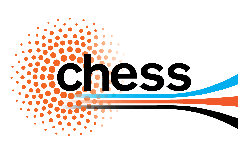Aperçu

Separation/extraction of sources are wide concepts in information sciences, since sensors provide signal mixing and an essential step consists in separating/extracting useful information from unuseful one, the noise. The project addresses three challenges.
In many areas like brain imaging, hyperspectral imaging, due to various kinds of sensors, there are many ways for recording the same physical phenomenon leading to sets of multimodal data. Multimodality has been studied in human-computer interface or in data fusion, but never at the signal level. The first challenge is to provide a general framework of multimodal source signals.
There exist a few cases where the mixtures are essentially nonlinear, e.g. with chemical sensors. However, up to now, most of the source separation/extraction results and methods are restricted to linear mixtures. The second challenge is to enlarge theoretical results on identifiability and algorithms in nonlinear source separation, especially for new classes of nonlinearities (e.g. multilinear) and priors on sources.
In high-dimension data (e.g. EEG or MRI in brain imaging), separating all the sources is neither tractable nor relevant, and one would like to only extract the useful sources. Conversely, for a small number of sensors, especially smaller than the number of sources, it is again necessary to only focus on the useful signals. The third challenge is to develop generic framework for only extracting useful signals, based on coarse reference signals or priors.
Finally, validation and relevant modeling will be based on actual signals and problems, especially in biomedical engineering (brain-computer interface, EEG, fMRI), chemical engineering, audio-visual scene analysis and hyperspectral imaging.
Breakdown results are waited in methodology, with an enhanced general framework in source separation for multimodal, multidimensional and nonlinear signals, which should have high societal impacts in many domains like health and environment.
- Site web: http://www.chess-erc.eu
Dernières annonces
Chess Meeting
Also named Galette des Rois meeting
Chess Meeting
The next CHESS meeting will be Monday January 23, from 10:00 to 11:30 (French time).
There will be two talks, the first given by Fateme GHAYEM and the second by Saloua CHLAILY.
Chess Meeting 2017/01/09
Every PhD and post-doc students involved in the CHESS project present briefly (max 2-3 slides, and about 5 minutes) what she/he is interested in and investigating.
Chess Meeting 2016/12/09
The next CHESS meeting will take place on Monday, December 12, at 10:00 am in room Chartreuse.
Massoud Babaie-Zadeh talk
"Smoothed L0 (SL0): A fast algorithm for finding the sparse solution of an underdetermined system of linear equations"
Membres
Permanent Lab Members : Bertrand Rivet, Christian Jutten, Marco Congedo, Pierre Olivier Amblard, Pierre Pignede, Ronald Phlypo, CHESS permanent
Post-Doc: Alexandre Aksenov, Anthony Bourrier, Dana Lahat, Denis Fantinato, Easter Selvan Suviseshamuthu, Ewaldo Eder Carvalho Santana, Miguel Angel Veganzones, Paolo Zanini, Victor Maurandi, Wendyam Ouedraogo, CHESS Post-Doc
PhD Student: Bahram Ehsandoust, Fardin Afdideh, Florent Bouchard, Louis Korczowski, Lucas Drumetz, Pierre Narvor, Saeed Akhavan Bahabadi, Saloua Chlaily, Saman Noorzadeh, Yasmin Navarrete, CHESS PhD
Trainees: Fabien Boux, CHESS Trainees